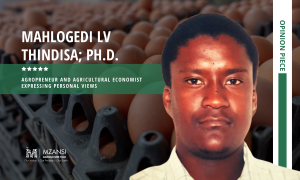Delays in maize harvest could affect food prices amidst of COVID 19 crisis

Prior to COVID 19 lockdown, South Africa already had 14.8 million people living under poverty line. The lockdown has somewhat increased the number of people unable to afford and access food because of loss incomes. Majority of South Africans and neighbouring countries within the continent rely on maize as a staple food product. Maize has been cultivated in the continent since it was introduced by Portuguese travellers and missionaries around 16th century. Maize is now a main staple food crop of more than 300 million Africans. It is the most popular African agricultural product especially in countries like Kenya, Malawi, Nigeria and South Africa.
In time of coronavirus crisis, the availability of maize is essential to maintaining the supply of food to South Africans as well as neighbouring countries, given that South Africa is a net exporter of maize. The Crop Estimate Committee of South Africa projects that the country will have the second biggest crop in history estimated at 15.049 million tons for 2020 harvest season. The expected good maize harvest is driven by good summer rains experienced since late October 2019. South African climatic conditions favour the maize production due to high sunlight capacity. Maize needs maximum intensity of sunlight, that is the reason why maize is cultivated on tropical and subtropical areas. The good rains came in slightly late which also delayed the planting of maize. As a result of late rains, moisture on maize is still existing which is delaying the harvesting of some fields. This has caused some concerns as food availability is critical during the COVID 19 lockdown. Despite the market concerns on delayed maize harvest, the relatively good carryover stock from previous year has cushioned the market price. As a result, the price of maize has shifted from an average of R2988.5/t in February 2020 to R2600.00/t in May 2020 reflecting the good carry over stock and the anticipated bumper crop.
Engagements with grain traders revealed that they are aware of some delays due to moisture on maize crop, however, they also highlighted the good carryover stock from previous seasons. According to Crop Estimate Committee the country has a maize carryover stock of 2.4 million tonnes, which should alleviate pressure on maize demand while more farmers are waiting for maize fields to be ready for harvest and exports. In conclusion, future belongs to those who prepare for it. Even in the mist of COVID 19 young farmers need to be well equipped and groomed for the future since history is likely to repeat itself. Government have great tasks to transform the sector and make sure that small scale farmers are being commercialize since the population is growing. It takes the whole innovative value chain to sustain the maize industry.
Disclaimer: The views and opinions expressed in this article are those of the author and do not necessarily reflect the official policy or position of Mzansi Agriculture Talk.



















